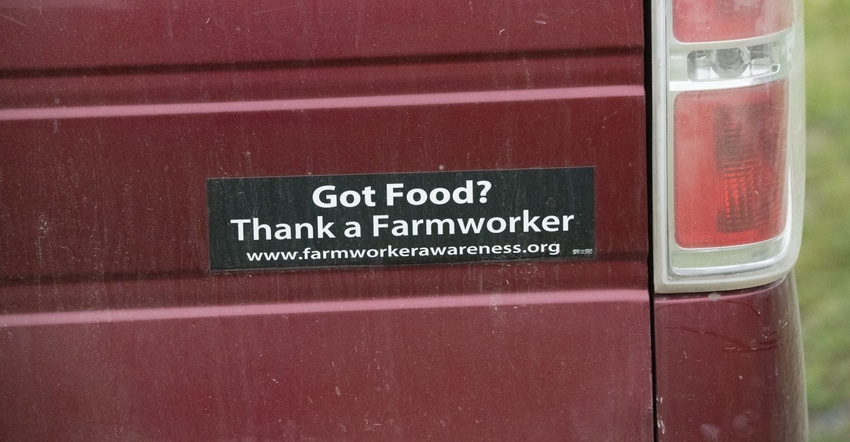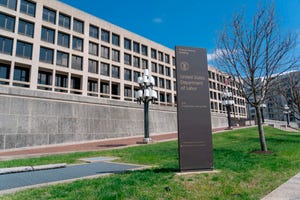Travel bans impacting incoming agriculture H-2A workers
South African farm labor is exempt but additional countries could limit H-2A ag labor pool.

President Biden signed a proclamation that limits and prohibits travel to the U.S. from certain countries, including South Africa, due to the COVID pandemic. Although the U.S. Department of State granted a national interest exemption for H-2A and some H-2B workers from South Africa, the travel restrictions could impact a significant number of agricultural H-2A workers.
According to the Department of Labor, H-2A workers are defined as nonimmigrant workers that perform agricultural labor on a temporary or seasonal nature. In the third quarter of 2020, there was a 4% increase in H-2A positions from the prior year, nearing 90,000 temporary jobs.
Biden’s proclamation allows for noncitizens to be exempt from the ban if their arrival is in the national interest. Food and agriculture workers have been deemed essential during the pandemic. The American Farm Bureau Federation sent a letter to Secretary of State Antony Blinken and Acting Homeland Security Secretary David Pekoske requesting an exemption for South African farm labor.
“Most custom harvesters try to fill their crews with American employees, but due to the seasonality of the job, that becomes unfeasible. Many of our members will start their harvest season in the southern states in March and will continue north until late fall. That is only about eight months of work, so utilizing H-2A workers makes sense for our members,” says Raph Jolliffe, U.S. Custom Harvesters president.
While the accommodation for South African workers alleviates some of the concern, it does not provide relief from other countries subject to the ban, USCHI says. The Biden administration banned foreign travelers from South Africa, Brazil, the United Kingdom and 26 other European countries due to concerns regarding the Covid-19 and new virus variants. These countries are where many custom harvesters hire their seasonal crews.
“What I’ve been told is there are about 5,000 workers that the harvest industry uses through the H-2A program for [South Africa],” says Louie Perry, principal and director of Washington, D.C.-based Cornerstone Government Affairs. "We understand that a travel ban may be necessary to stop the spread of Covid-19, but it has created a serious issue for the harvesting and agricultural industry, which is the foundation of the food system. We look forward to working with the Biden administration to define a pathway to get these essential food system workers cleared to continue to support the U.S. food supply.”
Reps. Frank Lucas, R-Okla., Rick Crawford, R-Ark., and Henry Cuellar, D-Texas, penned a bipartisan letter with 42 House colleagues urging Blinken and Pekoske to prioritize the nation’s agriculture supply chain when imposing travel restrictions.
“Visa programs have always been of use to our farmers who need to staff up for planting and harvest seasons but have less work for employees during the winter months. With spring right around the corner, we should be helping our farmers have a successful crop, rather than cutting their resources. I encourage President Biden and his administration to immediately examine ways to create exemptions for these workers, while ensuring that proper safety precautions surrounding COVID-19 are in place,” says Crawford.
According to a recent AFBF Market Intel from economist Veronica Nigh, overall, usage of the H-2A program in fiscal year 2020 (Oct. 1, 2019 – Sept. 30, 2020) continued its steady upward march. More than 275,000 H-2A positions were certified in fiscal year 2020, up 6.5% from fiscal year 2019. This was the eighth consecutive year that usage of the H-2A program set a record.
It is estimated that in 2020, 90 workers from the Schengen Area (the 26 European countries that have ended internal borders), 40 from Brazil and 90 H-2A each from the United Kingdom and the Republic of Ireland participated in the H-2A program, which would now be under travel restrictions, says Nigh.
About the Author(s)
You May Also Like





